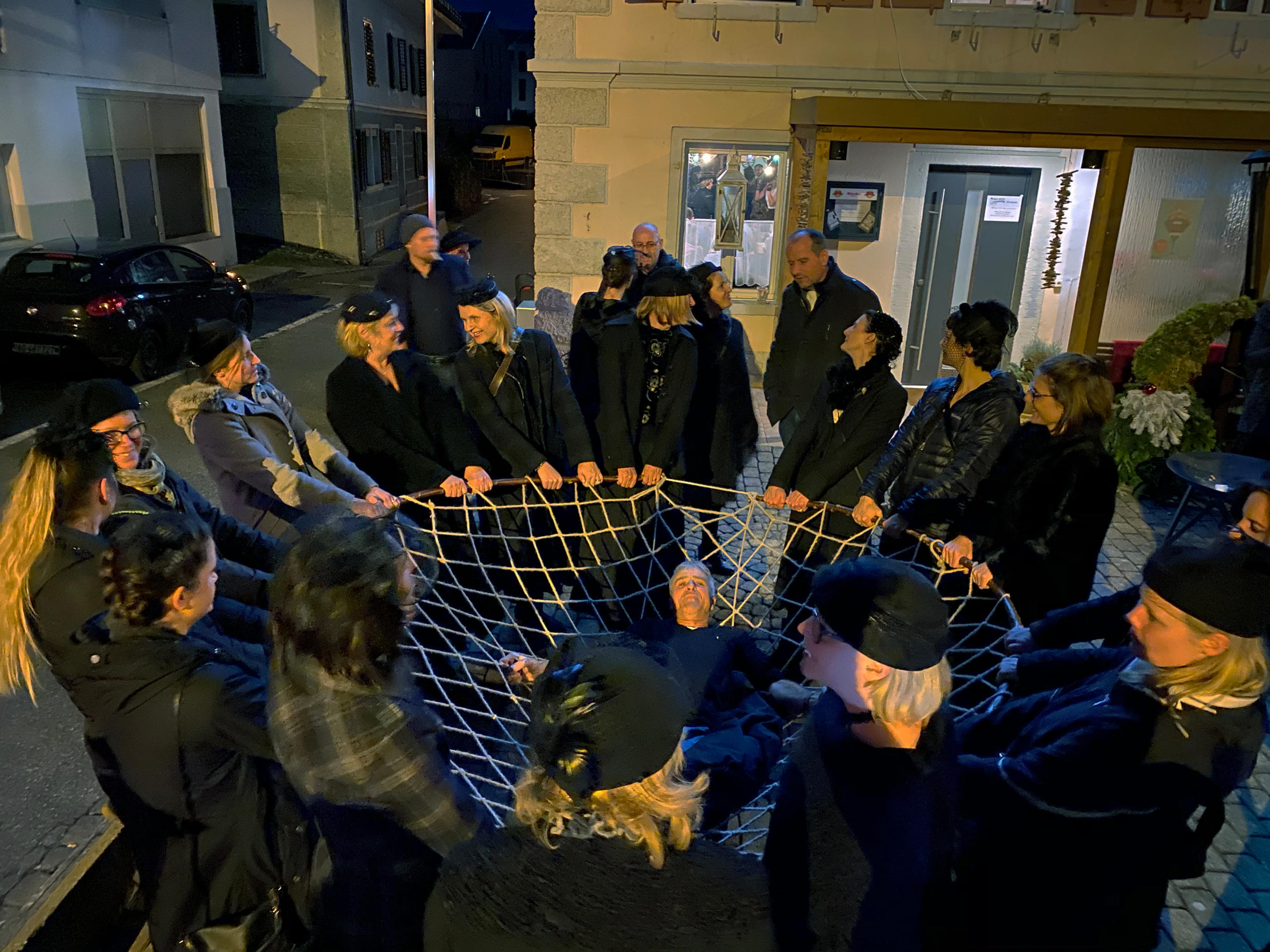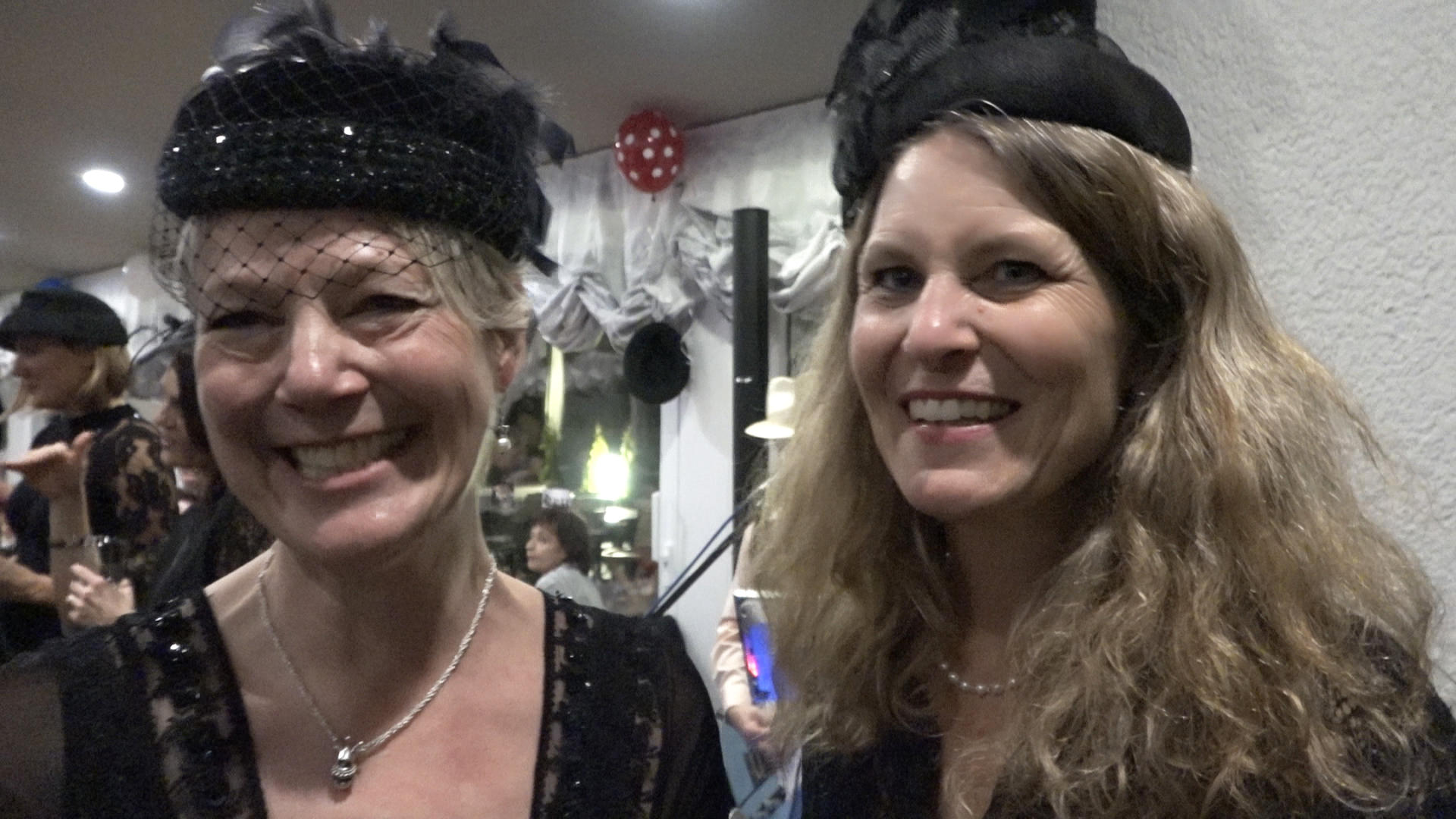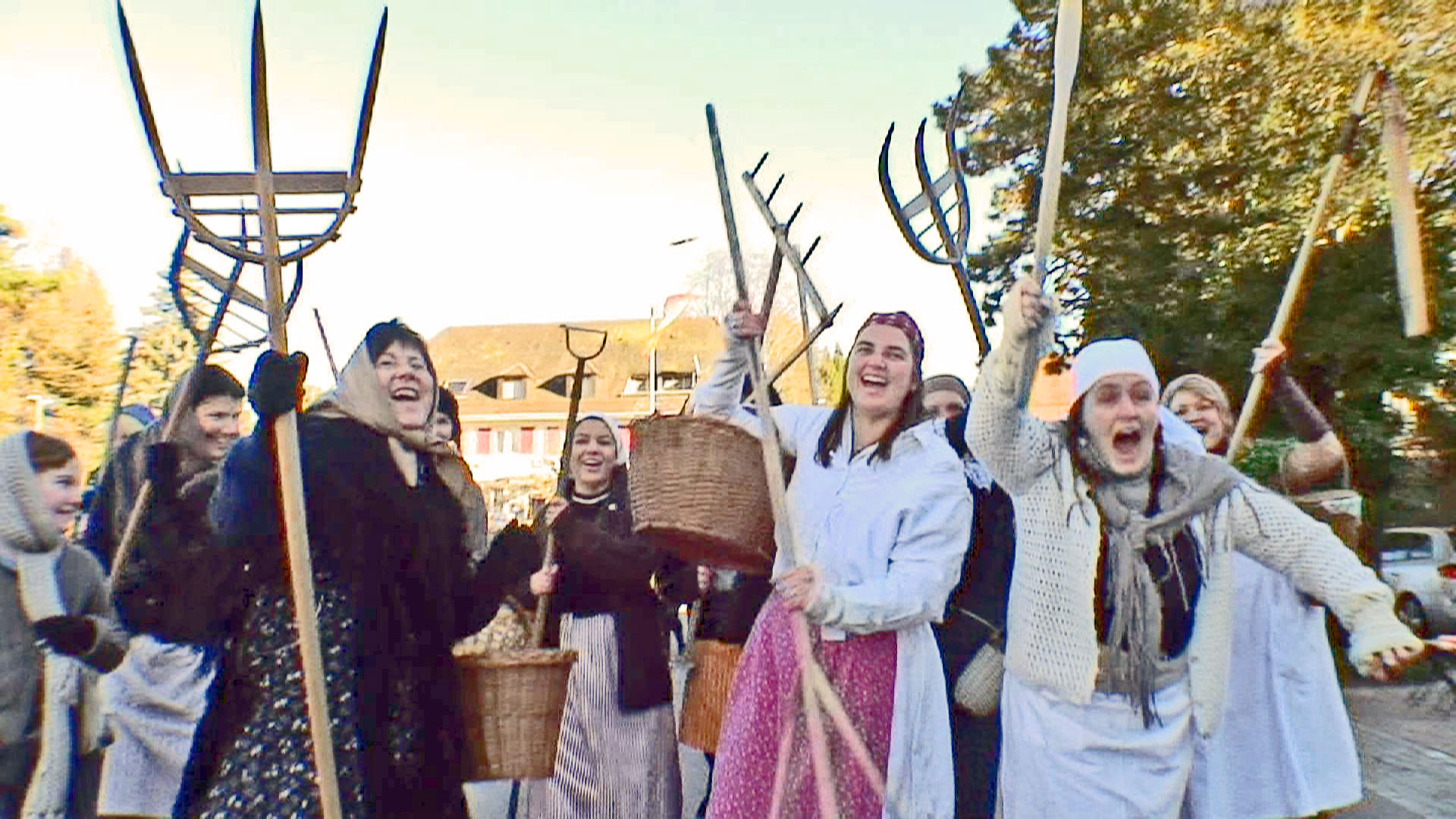Historic bravery rewarded with three days of women’s power

In a 300-year-old tradition, two Swiss villages see women stake their claim to power every January. The three-day festival is just for fun, but it has roots in an important historical event and it sets the stage for modern-day gender discussions.
“Women’s rule” is the order of the day – or rather three days – in Fahrwangen and Meisterschwanden in canton Aargau, and it’s all down to the ladies’ decisive role in the second Villmergen War in 1712, which pitted Zurich and Bern against the Catholic cantons of central Switzerland. The two villages were at that time ruled by Bern and Fahrwangen was a camp for Reformed troops.
The Catholics launched an attack while the men of the villages were away fighting and legend has it that the Bernese army commander sent the women to the woods to make noise and trick the invaders into thinking that they were an army of reinforcements. The war ended in a Catholic defeat.
The Bernese commander was allegedly so impressed with their fighting spirit that he granted the women three days per year to do as they please. Those days are known as “Meitli-Donnerstag” (Girls’ Thursday), “Meitli-Samstag” (Girls’ Saturday) and “Meitli-Sonntag” (Girls’ Sunday), and are celebrated every year.
Catching men
Ninety women of all ages participated in this year’s event, slightly more than in previous years, showing that the old tradition is standing the test of time in canton Aargau. The Meitlisonntag Association was founded in 1912, 200 years after the Villmergen War, but the first official mention of the custom was in 1842.
On Girls’ Thursday, groups of 12-15 women set out for the first bar accompanied by a troupe of drummers. They offer the men free drinks and dance with them before choosing their ‘victims’. The organising committee offers dancing lessons ahead of Girls’ Sunday to make sure that all the participants are ready.
The chosen hostages are often men who have contributed to the cohesion of the village in some way, for example through voluntary work, but there are no strict criteria. The captured man is asked to step into a net made of hemp and is then bounced up and down before being carried to the next bar, where he buys his freedom by footing the drinks bill. On Girls’ Thursday the women wear masks and dance in the bars. The weekend of festivities also includes a carnival parade and a children’s ball.

More
The women who catch men in nets
Modern relevance
It’s a custom that could raise eyebrows among modern-day feminists: why are women still being granted just three days of power in an age where equality between the sexes is supposed to be the norm? Members of the “Meitlisonntag” Association say it’s true – they no longer need to be granted power in their villages by the men – but women’s’ rights in general still need to be promoted. They feel that by celebrating with this tradition, they are carrying on the fight for equality.
The association’s president, Priska Lauper, believes the custom should be preserved because it celebrates strong women and is unique. Her 16-year-old daughter joined the group for the first time this year and Lauper hopes she will continue. The custom has been included in the cantonal list of intangible cultural heritage, a collection of Swiss living traditions considered worthy of protection. The idea of the list is to raise awareness of cultural customs and how they are communicated.
The festival ends with the women symbolically handing back the reins of power to the men with the presentation of a giant round plaited bread called a “Zopf”, but Lauper says this gesture is entirely tongue in cheek: “On Sunday we tell the men we are symbolically handing back the power. They think it’s funny because they know who really wears the trousers: the women”.

In compliance with the JTI standards
More: SWI swissinfo.ch certified by the Journalism Trust Initiative



You can find an overview of ongoing debates with our journalists here. Please join us!
If you want to start a conversation about a topic raised in this article or want to report factual errors, email us at english@swissinfo.ch.